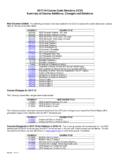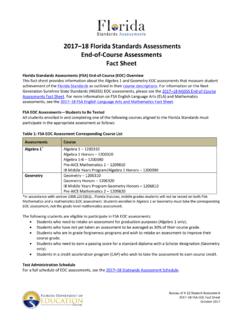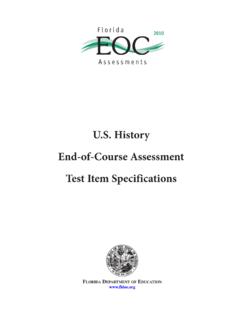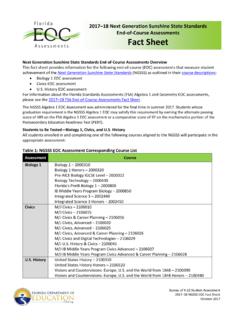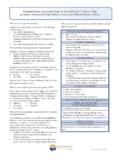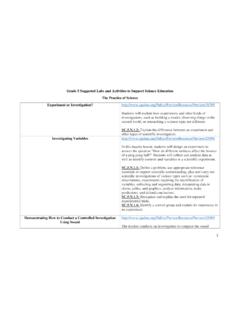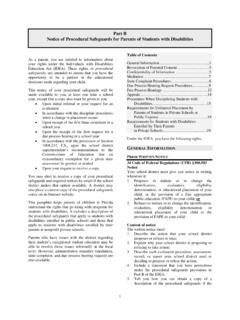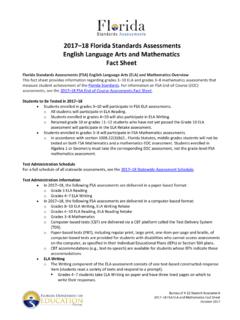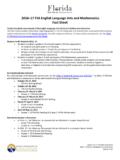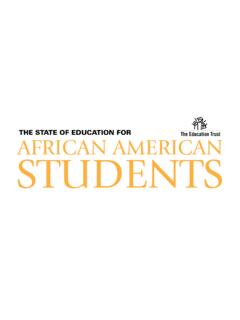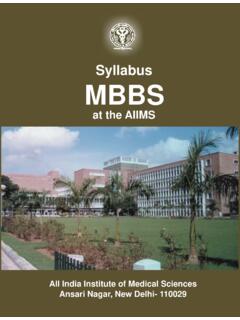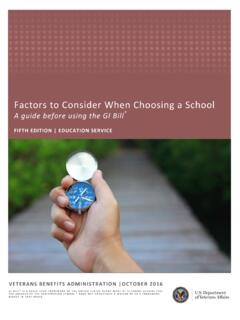Transcription of Florida Department of Education
1 Florida Department of EducationFlorida s Guide to PublicHigh School GraduationFor Students Entering Grade 9 2011-2012 School YearHigh School Graduation Programs OverviewIf you are the parent of a Florida middle or high school student, this guide is for you. It is designed to explain Florida s high school graduation programs, including two programs that let students graduate from high school in three years. The guide also provides information to help students and their families as they plan and prepare for postsecondary goals, including information on acceleration options and advanced coursework. For more information about a special diploma and other graduation options for students with disabilities, contact your child s school counselor or exceptional student Education teacher, or visit students entering their first year of high school in the 2011 2012 school year may choose from one of five options to earn a standard diploma.
2 A four- year , 24-credit program An International Baccalaureate (IB) curriculum An Advanced International Certificate of Education (AICE) curriculum A three - year , 18-credit college preparatory program A three - year , 18-credit career preparatory programAll of these graduation paths include opportunities to take rigorous academic courses designed to prepare students for their future academic and career choices. All students, regardless of graduation program, must still earn a specific grade point average (GPA) on a scale, achieve passing scores on the Grade 10 Florida Comprehensive Assessment Test (FCAT) Reading, and meet specific end-of- course (EOC) assessment requirements to graduate with a standard diploma (refer to the chart concerning graduation requirements).
3 24-Credit ProgramThis program takes the traditional four years to complete high school and requires students to take at least 24 credits in core content areas. Foreign language credit is not required for this program, although it is recommended for Florida college preparation and is required for admission to Florida s state universities. three - year , 18-Credit College Preparatory ProgramThe requirements of this program are designed to prepare students for entering a postsecondary institution of Education . This accelerated graduation program requires fewer credits and focuses more on academic courses. Students must earn at least 6 of the 18 required credits in specified rigorous-level courses.
4 The credits required by this program must satisfy the minimum standards for admission into Florida s state universities which include two credits in the same foreign , 18-Credit Career Preparatory ProgramThe requirements of this program are designed to prepare students for entrance into a technical center, Florida college for career preparation, or the workforce. This accelerated graduation program requires fewer credits and focuses more on academic courses. The three - year career preparatory program requires students to earn specific credits in a single vocational, career, or technical Education program. Credit Acceleration Program (CAP)Beginning with the 2011 2012 school year , the CAP allows a secondary student to earn high school credit if the student earns a specified score on the corresponding standardized EOC assessment.
5 A school district will permit a student who is not enrolled in the course , or who has not completed the course , to take the EOC assessment during regular administration of the assessment. For more information, contact the school a ProgramThe three - year programs are designed for students who are clear about their future goals and are ready to pursue them beyond high school in an accelerated manner. To assist students and parents with this task, each school district shall provide each student in grades 6 through 12 and their parents with information concerning the three - year , 18-credit and the four- year , 24-credit high school graduation options. To select a three - year graduation program, at any time during grades 9 through 12, students and their parents should meet with designated school personnel to receive an explanation of the requirements, advantages, and disadvantages of each program option.
6 Students must also receive the written consent of their parents. A student may select a three - year graduation program without parental consent if the student is 18 years of Programs and Advanced CourseworkStudies show that students who complete a solid academic program in high school, including advanced courses, are more likely to be successful in college. Students in all graduation programs are encouraged to take advantage of advanced course offerings and acceleration programs, such as dual enrollment, early admission, the Advanced Placement (AP) Program, IB, the AICE, and Industry Certification. These programs may not be available in all school districts or high schools. For information, contact a school Baccalaureate Diploma ProgramThe IB Diploma Program is a rigorous pre-university course of study leading to internationally standardized tests.
7 The program s comprehensive two- year curriculum allows its graduates to fulfill requirements of many different nations Education systems. Students completing IB courses and exams from six subject groups are eligible for college credit. The award of credit is based on scores achieved on IB exams. Students can earn up to 30 postsecondary semester credits by participating in this program at the high school level. Approximately 72 Florida high schools offer an IB Diploma Program. Students in Florida s public secondary schools enrolled in IB courses do not have to pay to take the exams. For information, visit International Certificate of Education ProgramThe AICE Program is an international curriculum and examination program modeled on the British pre-college curriculum.
8 To be considered for an AICE Diploma, a candidate must earn the equivalent of six credits by passing a combination of examinations at either the full (one credit) Advanced Subsidiary Level (AS) or double (two credits) International Advanced Level (A), with at least one course coming from each of the three curriculum areas. Florida s colleges and universities provide college credit for successfully passing the exams. Students in Florida s public secondary schools enrolled in AICE courses do not have to pay to take the exams. For information, visit and Enrollment and Early AdmissionThese programs allow eligible high school students to enroll in postsecondary courses.
9 They earn credit toward high school graduation and, at the same time, earn credit toward a college degree or technical certificate. All 28 Florida colleges and some of the state universities participate in dual enrollment. Students are permitted to take dual enrollment courses on a part-time basis during school hours, after school, or during the summer term. Dual enrollment students do not have to pay registration, matriculation, or laboratory fees. In addition, textbooks for dual enrollment are provided to students free of charge. Dual enrollment courses will be weighted the same as courses taught through other acceleration mechanisms. Students should be aware that grades received through dual enrollment at Florida colleges and universities become part of the permanent postsecondary record.
10 State universities will not admit a student who has less than a GPA on a scale. Advanced Placement ProgramThe College Board s AP Program is a nationwide program consisting of more than 30 college-level courses and exams offered at participating high schools. Subjects range from art to statistics. Students who earn a qualifying grade of three or above on an AP exam can earn college credit, or AP credit, or both, depending on the college or university. Students in Florida s public secondary schools enrolled in AP courses do not have to pay to take the exams. For information, visit General Certificate of Secondary Education Program (IGCSE)The IGCSE Program is an international curriculum and examination program designed for 14- to 16- year -old students.
